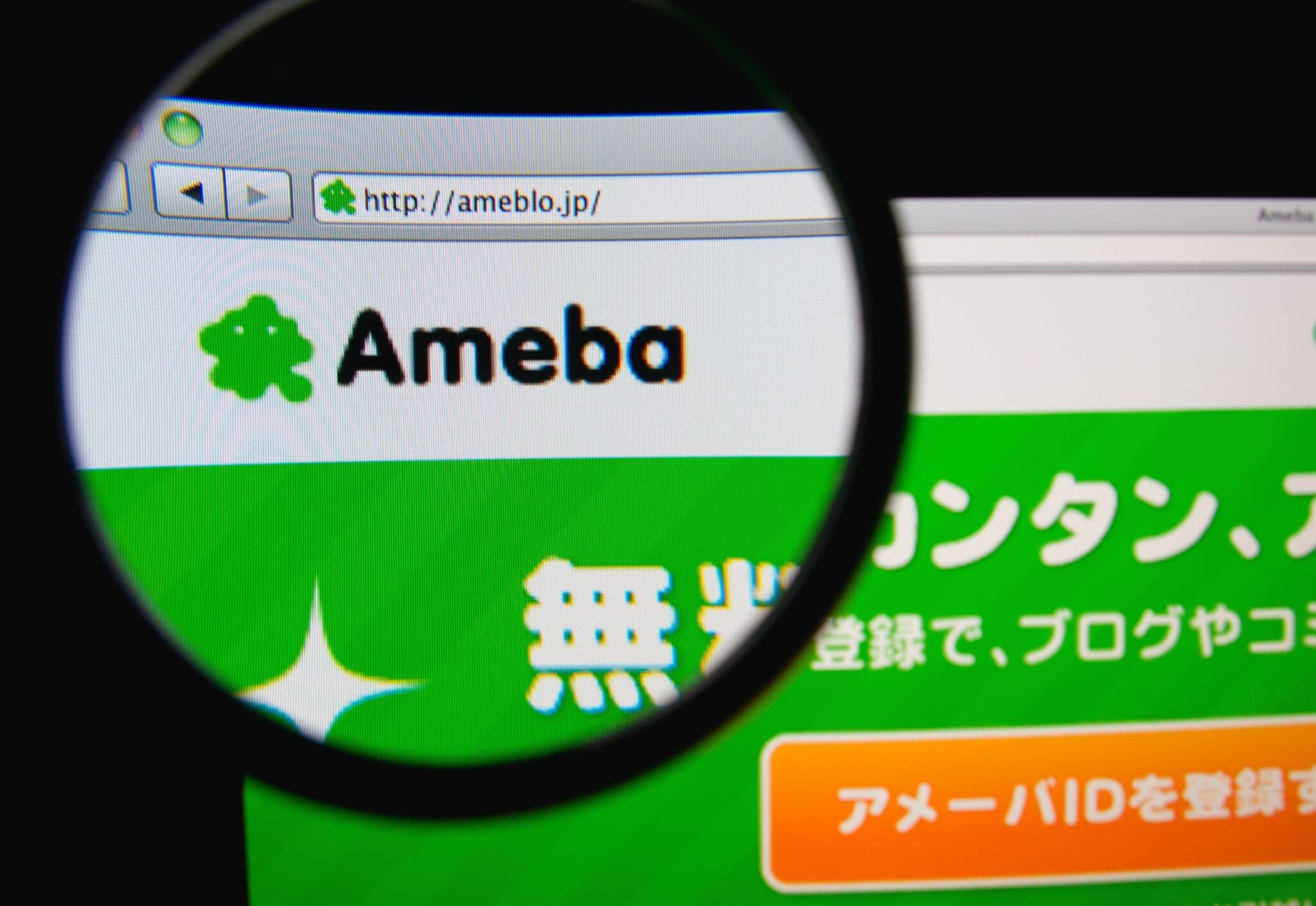How to Identify Malicious Commenters on Ameblo (Japanese Blogging Platform)

Ameba Blog (Ameblo) is a service widely used in Japan that allows you to start a blog easily and for free. Blogs can have a comment section installed, allowing readers to share their impressions. In many cases, the comment section is designed to allow anyone to post, which may lead to the possibility of malicious comments such as slander.
In this article, we have compiled methods to identify the commenter when malicious comments are made on Ameblo.
What is Ameba Blog?

Ameba Blog is a rental blog service operated by CyberAgent, personalityized by its accessibility for anyone to start a blog. As it is also used by celebrities, there are many people who register to read and comment on celebrity blogs. It also allows for easy initiation of affiliate marketing, and if you can attract customers, it is possible to earn a significant amount of money.
What are malicious comments on Ameblo?
Ameblo, boasting over 50% share in the free blog market, is a site with a high risk of malicious posts due to its large number of users and high access rate. In August 2019, the number of Ameblo registrants exceeded 65 million, meaning that one in two Japanese people are registered.
The large number of users also means a high risk of attracting negative attention. When you get noticed, such as being ranked high on AmeTopi, there are people who don’t think well of you just for that. Even if the post is not negative content such as slander or complaints, malicious comments may be made.
Malicious comments on Ameblo can be broadly divided into three categories.
Those directed at the individual poster
Especially when the person running the blog is a celebrity or a well-known person, malicious comments may be made against the individual poster. Ameblo allows relatively easy commenting, so you can interact casually even with celebrities.
Unpopular celebrities, for example, may unexpectedly be hurt by seeing posts slandering them personally, which have nothing to do with the content of the blog.
Those caused by the content of the post
Even ordinary people can have dissatisfaction with the content of the post.
Even if you think you’ve posted something like a diary, you may receive criticism for your way of thinking or values. For example, if you write a complaint about your husband in your diary, you may be written things like “That’s terrible! I feel sorry for your husband” or “My husband is dead, but you’re not grateful to your husband at all”. Furthermore, there are cases where individuals are identified from images posted without any thought. The content of the post must be carefully considered in terms of morals and ethics.
By the way, if you receive slander on Ameblo, you may attract attention and increase your readership. The act of reblogging, equivalent to retweeting on Twitter, is often done. Conversely, it can be said that there is a certain effect of attracting customers, so there is a possibility that posts may be made for the purpose of causing a stir.
In the blog article, you may introduce your impressions of using facilities such as restaurants, beauty salons, and hospitals. Depending on the content, there is a possibility of slander and rumor damage to the introduced facility. For information on how to delete slanderous articles on Ameblo, please see this article.
https://monolith.law/reputation/deletion-of-posted-articles-on-ameba[ja]
The above is about deleting articles, but if you are troubled by comments on Ameblo, you can also delete the relevant comments.
You can delete comments made on your blog.
https://helps.ameba.jp/faq/blog/comment/post_76.html[ja]
Please note that once a comment is deleted, it cannot be restored.
*You cannot delete comments posted on someone else’s blog.
Also, by specifying the relevant IP address, you can refuse reviews.
If your comment is rejected, it may be because the comment is being rejected by IP address.
https://helps.ameba.jp/faq/blog/comment/post_1358.html[ja]
→It’s not a specific IP address, but a specific range of IPs are set to reject, and your IP address is included in that range.
We leave the rejection settings by IP address to each blog administrator, so we cannot provide detailed guidance.
Furthermore, with the administrator’s authority, you can limit the range of comments that can be posted, or you can set it so that comments are not accepted in the first place.
However, if you suffer mental damage from persistent slander in the comments, deletion may not be enough, and you may want to identify the poster. We will explain the method of identifying the poster step by step.
Procedure for Identifying the Poster ① Investigate the Source IP Address

The first step in identifying the poster is to determine the IP address of the device that made the post. An IP address is like an address on the internet, a number assigned to every device connected to the internet.
The reason why an IP address is necessary is because it allows us to identify the provider or carrier that made the post. In many cases, the site operator does not have personal information about the person who made the malicious post. In the case of Ameba Blog, depending on the blog owner’s preference, comments from the general public may be accepted. In this case, registration with Ameba is not required when commenting, so the site does not have any personal information about the comment poster.
If comments are only accepted from users who have registered with Ameba, the registration requires an “email address, Ameba ID, password, date of birth, and gender”. Since you can register with a free address like Gmail, it would be difficult to identify an individual with this information alone.
Thus, because the site does not have the poster’s personal information, it is necessary to disclose the IP address. And like many other review sites, a provisional disposition procedure for requesting the disclosure of the IP address is carried out against the site operation.
However, in the case of Ameba Blog, this procedure can be skipped. This is because the poster’s IP address can be easily obtained without disclosure. Although only the blog administrator can check it, the poster’s IP address is listed in the lower right corner of each comment field.
If you conduct an investigation on an IP address search site, you can determine who the provider is.
Procedure for Identifying Posters ② Prohibition of Log Deletion
By identifying the IP address, you can determine the provider that supplies the internet connection to the device that made the post. Providers include Nifty and NTT for fixed lines, and au and docomo for mobile lines. These providers keep logs, such as the address and name of the person who made the post.
However, these logs are not stored permanently. In the case of mobile lines, the logs may be deleted as early as three months. If the provider deletes the logs, there will be no information to disclose, resulting in a failed disclosure request.
Generally, a lawsuit for disclosure of sender information requires a period of about half a year or more. There is a significant risk that the logs may be deleted during the course of the lawsuit proceedings. To prevent this, a procedure to prohibit the deletion of logs is necessary. It is possible to obtain a court order to prohibit the deletion of logs through a provisional disposition procedure.
Even without going through court proceedings, in many cases, it is sufficient to issue a notice stating, “We are about to request disclosure, so please do not delete the logs of the relevant post.” When issuing a notice, it is necessary to acknowledge that the relevant comment is illegal. As legal arguments and evidence are required, it is recommended to consult a lawyer.
By the way, Ameba Blog is a blog service that tends to have long articles, and it is conceivable that articles are written on both computers and smartphones.
If you were using your home internet connection, identifying the provider can lead to identifying the poster. However, in recent years, there are not a few people who write outdoors, such as in cafes. If you were using the store’s Wi-Fi, be aware that it increases the difficulty of identifying the poster.
Procedure for Identifying the Poster ③ Lawsuit for Disclosure of Address and Name

Once the procedure to prohibit the deletion of logs is completed, we will file a lawsuit against the identified provider to disclose the sender’s address and name. The request for information disclosure must not be a simple provisional disposition, but must be made through a lawsuit.
Information such as addresses and names is quite important personal information. If it is disclosed easily, personal information may leak out, leading to unexpected disadvantages. No matter how much mental damage is inflicted on the victim, the sender’s privacy must also be protected. For these reasons, a lawsuit will be filed where more careful discussion is possible. Since a lawsuit involves a court battle, it will be necessary to hire a lawyer.
The market price for the lawyer’s fee for a request to disclose the sender’s information is
An initial fee of about 300,000 yen, and a success fee of about 200,000 yen
https://monolith.law/reputation/reputation-lawyers-fee[ja]
It is said to be like this.
Procedure for Identifying the Poster ④ Damage Compensation Claim
If you win a lawsuit requesting the disclosure of the poster’s name and address, you will be able to identify who and where the poster is. Once the poster has been identified, it is also possible to make a claim for damages against them.
Being continuously subjected to defamatory comments can cause significant emotional distress. There have even been cases where celebrities have committed suicide due to the distress caused by online defamation. Compensation for such emotional damage is referred to as “consolation money” in Japanese law, and it is possible to claim this even when the poster has been identified.
Furthermore, not only consolation money, but also the costs incurred by hiring a lawyer for the entire process of identifying the poster (such as investigation costs and attorney fees) are subject to compensation. In theory, if a claim for damages is successful, it is possible to fully recover the attorney’s fees.
However, there are risks, such as whether you can receive sufficient compensation to cover all the attorney’s fees, or whether a claim for damages will be recognized in the first place. Even if you spend a long time and cost to win a claim for damages, it is entirely possible that you may end up losing money overall.
Summary
We have introduced methods to identify the authors of malicious comments on Ameba Blog.
Generally, in order to identify the author, it is necessary to obtain the IP address. However, on Ameba Blog, if you are the blog administrator, you can check the IP address of each comment. In other words, there is no need to go through the process of requesting the disclosure of the IP address.
We will file a lawsuit directly to the identified provider for the disclosure of the sender’s address and name. If you win the address disclosure request, you can identify the poster, so let’s make a claim for damages as needed.
Since these procedures involve legal proceedings through the court, we recommend that you consult with a lawyer. Our firm has lawyers who are experienced in dealing with online defamation, so please feel free to consult us.
Category: Internet





















